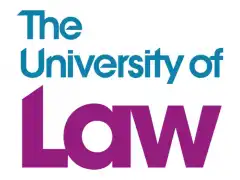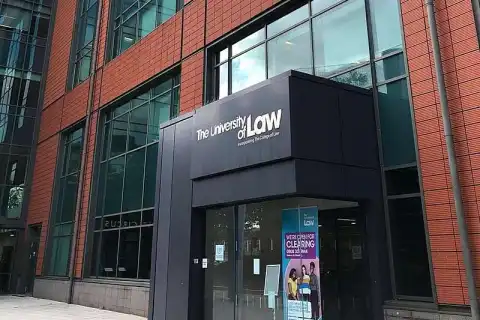Bachelor of Science (Hons) - Professional Policing
- 3 years
- Duration
- 17,550 GBP/year
- Price
- Rolling admission
- Start
- Rolling admission
- Deadline
- Bachelor
- Degree
- Campus
- Format
- Multiple Locations / United Kingdom
- Location
- ULaw - The University of Law
- School
Program description
Three years are required to complete the BSc (Hons) Professional Policing, which is aligned with the standards set by the College of Policing National Curriculum. The College of Policing has approved this program as a Pre-join Degree in Professional Policing, making it possible to use it as a stepping stone toward a career as a police officer. You will receive foundational knowledge on important aspects of criminal justice and have the option to delve more deeply into areas of particular interest to you through elective modules.
The Placement Year is an optional component of our undergraduate degree programs. A Placement Year allows you to get valuable work experience, hone your leadership skills, and make a strong first impression in the corporate world under the guidance of our faculty.
You can study a Foundation Year before your Bachelor course. This first year develops degree-level study skills. Six courses will lead to any of our three-year degrees.
Program structure
1st year
- Understanding the Police Constable Role and Professional Standards
- The Criminal Justice System, Key Legislation, Offences and Civil Matters
- Foundation for Operational Policing Skills: Decision Making, Discretion and Problem Solving
- Core Principles of Evidence Based Policing, Information and Intelligence
- Introduction to Vulnerability and Risk
- Introduction to Criminology, Crime Prevention and Key Psychological Concepts
2nd year
- Public Protection: Understanding Abuse and Impact
- Community Policing, Antisocial Behaviour and Introduction to Road Policing
- Information, Intelligence and Digital Policing
- Response Policing and Police Investigations
- Custody, Interview and Criminal Justice
Choose one:
- Cybercrime
- Forensic and Criminal Psychology
- Youth and Crime
- Zemiology (Social Harms)
3rd year
- Research Methods/Dissertation (double module)
- Responding to Major and Critical Incidents
- Supporting those at Risk of Harm & Victims of internet-facilitated crimes
- Research Methods/Dissertation (double module)
- Investigating Serious Crime, Understanding Terrorism and Transnational Organised Crime
- Counter-Terrorism and Advanced Road Policing
Price
Tuition fees for international students per year:
- 17,550 GBP (London)
- 16,700 GBP (Non-London)
Requirements for applicants
UK Entry Requirements
- A Level: BBC
- BTEC: DMM
- UCAS Tariff Points*: 112
- GCSE: English Language Grade C/4 or above, or equivalent
*From three A Levels or equivalent.
You will also need to possess GCSE English Language at Grade C/4 or an equivalent qualification.
English language requirements for applicants whose first language is not English
- IELTS score required: 6.5 overall (at least 6.0 in each component)
- The University of Law English Test (ULET)*: 6.5 overall (at least 6.0 in each component)
- TOEFL iBT (not ‘MyBest Scores’): 79 (Listening/Speaking 19, Reading 18, Writing 23)
- Pearson PTE Academic: 72 overall (at least 64 in each component)
- LanguageCert ESOL (both papers must be sat within 3 months): B2 Written paper: overall 101 (min 33 in R/L/W); B2 Spoken paper: min 35/50
- Trinity ISE : ISE II: Two merits and two distinctions
- Cambridge FCE/CAE/CPE (First, Advanced, Proficiency): 176 overall (at least 169 in each component)
- Cambridge IGCSE syllabus 0500, 0510, 0511, 0522, 0900, 0991:1st Language: C; 2nd Language: B
- International Baccalaureate : 4
- Functional Skills: Pass
- Trinity ESOL for Life Skills: Pass
English language requirements for applicants whose first language is not English (International Foundation Programme)
- IELTS score required: 6.0 overall (at least 5.5 in each component)
- The University of Law English Test (ULET)*: 6.0 overall (at least 5.5 in each component)
- TOEFL iBT (not ‘MyBest Scores’): 60 (Listening 11, Speaking 17, Reading 12, Writing 20)
- Pearson PTE Academic: 64 overall (at least 59 in each component)
- LanguageCert ESOL (both papers must be sat within 3 months): B2 Written paper: overall
- 101 (min 33 in R/L/W); B2 Spoken paper: min 33/50
- Trinity ISE : ISE II: Merit in all four components
- Cambridge FCE/CAE/CPE (First, Advanced, Proficiency): 169 overall (at least 162 in each
- component)
- Cambridge IGCSE syllabus 0500, 0510, 0511, 0522, 0900, 0991:1st Language: C; 2nd Language: B
- International Baccalaureate : 4
- Functional Skills: Pass
- Trinity ESOL for Life Skills: Pass
*The University of Law English Test (ULET) was developed to evaluate your level of English for undergraduate or graduate education. Our University will consider it as evidence of your proficiency in English. Additionally, it complies with the conditions for a UK visa for immigration (UKVI).
About the university

The University of Law is the largest law school in the United Kingdom and was formed in 1962 as The College of Law of England and Wales. It offers law degrees, specialized legal training, and continuing professional development courses for British barristers and lawyers. Its beginnings can be found around 1876.
Prior to receiving university status in 2012, the College of Law's educational and training business was divided off and incorporated as a private limited company. The College of Law had been established by royal charter as a charity in 1975. The College of Law Limited and The University of Law Limited were created from this. The college was given the authority to offer degrees in 2006. When it was given university status in 2012, it changed its name to The University of Law (ULaw) and became the first for-profit educational institution in the UK.
The university has nine campuses in the UK, located in Birmingham, Bristol, Chester, Guildford, Leeds, Manchester, Nottingham, and Sheffield, in addition to an overseas campus in Hong Kong.
All of our courses, from our undergraduate law degrees to our varied range of business courses and postgraduate programmes, are created using a special, varied, and innovative learning approach that has been shown to produce independent professionals capable of competing in the quickly changing professional world. Our courses are created to prepare you for the real-life difficulties of the working world with a focus on developing abilities in problem-solving, evaluating arguments, critical thinking, and commercial awareness.
Read more about The University of Law (ULaw), United Kingdom





